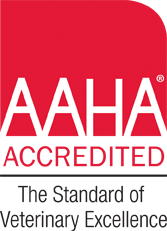At Ambassador Animal Hospital, our veterinarian has shared the benefits of pet vaccinations with residents of Columbia, SC, for many years. Our vet staff members are always ready to answer any questions you may have and work tirelessly to make sure the job is done right. This article will explain and answer a lot of the common questions people have about pet vaccinations.
What are vaccines and why should you care about them?
Vaccines are lab-tested and formulated medicines that aim to stimulate immunological responses and prepare your pet's body’s immune system for future encounters with deadly viruses and germs. Antibodies, which detect and destroy disease-causing organisms that enter the body, are produced and strengthened by vaccines and help to protect your pet against a plethora of illnesses that could potentially make the illness worse, and in some cases, even prevent them from happening altogether. According to experts, mass usage of vaccinations over the last century has prevented millions of animals from dying and contracting diseases. Vaccinations safeguard your pet against highly contagious and potentially fatal illnesses while also enhancing his or her general quality of life.
Are there any drawbacks to vaccinations?
Every sort of therapy has risks, but those risks should be carefully considered against the benefits of protecting your pet, your family, and your neighborhood from deadly illnesses. Most pets respond favorably to immunizations. The most frequent adverse effects of vaccination are minor and temporary. Severe reactions are uncommon. Tumor development (sarcomas) in cats is an uncommon but serious adverse effect that can occur weeks, months or even years after vaccination. The incidence of sarcomas has decreased significantly owing to advances in immunization technology and practice.
Why are puppies and kittens required to have a series of vaccinations?
Because their immune systems are still developing, and they are very young animals, which means they are particularly vulnerable to bacterial infections. Protection is offered by antibodies in the mother's milk, but it is only temporary, and there may be gaps in protection as the milk antibodies wane and the immune system matures. Maternal antibodies have also been implicated in the prevention of a puppy or kitten's vaccine response. It is typically recommended that they be given a series of immunizations.
Schedule an Appointment with Our Veterinarian in Columbia, SC
If you are in the Colombia SC area and need to schedule your dogs or cat's vaccinations, call Ambassador Animal Hospital today at (803) 787-3840 for more information or to schedule an appointment.


